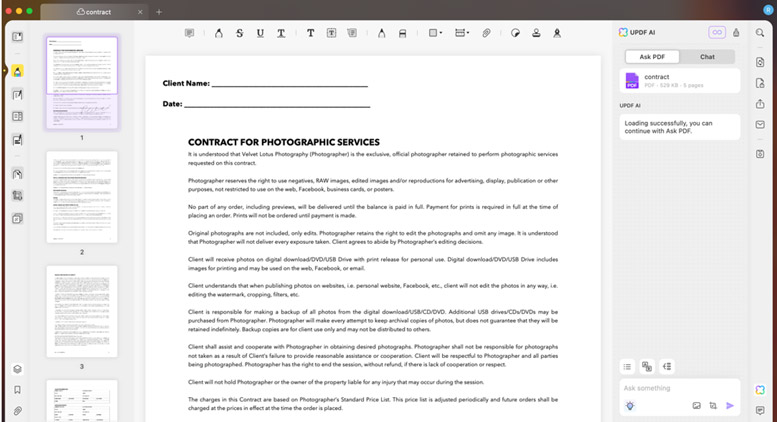Java Product News (October 13, 2000)
INDEXHEAD: Kana unveils eBusiness Platform for Unix
Kana Communications is now shipping its Kana eBusiness Platform for Unix, which allows organizations to incorporate legacy data into their Web-based e-business applications. The eBusiness Platform is a pure Java application that supports both IBM’s AIX and Sun’s Solaris operating systems. The Unix version of the eBusiness Platform includes the following elements:
- Data Object Designer for graphically creating new e-business applications
- Workflow Designer for creating and changing business processes via a drag-and-drop Web automation tool
- Business Rule Designer for developing and changing business rules via a browser-based interface
- Membership Designer for coordinating many aspects of the Website, such as customer profile management, site account management, request management, response management, contact management, task management, and staff management
INDEXHEAD: Radiant Logic intros Java-compatible VDS
Radiant Logic has introduced a Java-compatible version of its RadiantOne 1.5 Virtual Directory Server (VDS). The new application can run on J2EE-compatible servers as well as Solaris and other Unix platforms. The RadiantOne VDS provides users with a single directory interface for a variety of directory and database sources. It relies on Intelligent Object Mapping and Cache (IOMC) technology to coordinate the dynamic mapping of different data sources to directories. It also allows users to update data in the directory back to the original data store as if the data store were a native LDAP data store. RadiantOne VDS is compatible with Palm and WAP-enabled devices, which allows users access to directory-enabled information over the wireless Internet.
RadiantOne supports Microsoft Active Directory, Sun/Netscape iPlanet, Oracle Internet Directory, IBM SecureWay, Novell eDirectory, and other LDAP V3-compliant directory solutions. RadiantOne VDS Java Version 1.5 is expected to ship in late 2000.
INDEXHEAD: InterWise extends eLearning with Java client app
InterWise has introduced an InterWise Java client application that can be used in conjunction with the standard InterWise client application so that online classes can be offered to students in a mixed software environment. Most online courses are divided into standard client and Java client classes. When used with the InterWise Millennium application, different students in the same online courses can use both the InterWise Java client and the standard C++ software. The InterWise Java client is also a mere 500 Kb compared to the standard InterWise client application’s 2.5 MB memory requirements.
The InterWise Java client application should be available during late fall of 2000. The Java client application will be given to current InterWise customers at no charge.
INDEXHEAD: FFMTIFF available as free download
FFM Software is now offering an updated version of its FFMTIFF viewer for TIFF Group 4 at no charge. The Java-based view-and-print technology provides users with different viewing perspectives (such as magnifying glass and bird’s eye) as well as batch printing capabilities. FFMTIFF also allows users to selectively print subimages in TIFF documents with multiple pages. Developers can also use FFMTIFF as a standalone application and a browser-based applet. Web users distribute database query results via one transaction to an unlimited number of users. Users can purchase a customization program that allows organizations to add their company name and logo to a viewer’s toolbar. Another optional add-on is a Java API that allows corporate developers to make Java applications TIFF-compatible.
FFMTIFF can be downloaded free of charge.
INDEXHEAD: TogetherSoft adds UML course to online offerings
TogetherSoft has released an online course, dubbed “Practical UML: A Hands-On Intro for Developers,” to familiarize developers with the use of the Unified Modeling Language (UML). The course was created as an efficient introduction to UML. The online workshop outlines basic UML terminology and notation, details how the nine UML diagrams are created and used, and provides examples and self-test questions. It also addresses why UML can be useful for developers and how UML supports programming practices, and details the most essential UML features.
“Practical UML: A Hands-On Intro for Developers” is free of charge. Users can register at the following Website:
INDEXHEAD: AppStream’s Java streaming technology to go mobile
AppStream has announced a partnership with LG TeleCom that will incorporate AppStream for Java Technologies into LG TeleCom’s ez-i handsets. The agreement is expected to facilitate the delivery of Java technology-based applications on mobile phones by overcoming wireless network connection and limited memory issues. AppStream for Java Technologies speeds up the startup time for Java applications by dividing Java applications into streamlets and then sending them to the client device in the best sequence. AppStream for Java Technologies also automatically coordinates application version control on the handset, requires no changes to existing code, and can decrease traffic over cellular networks by sending only the streamlets that are needed to run an application.
INDEXHEAD: NewMonics improves PERC’s debugging and compilation abilities
NewMonics has updated its PERC software platform to version 3.1 with the addition of advanced debugging and compilation capabilities. The development tools and runtime modules now allow developers to debug ahead-of-time compiled code in applications containing a blend of compiled and interpreted code. PERC’s memory management abilities have also been improved with the addition of a tree-shaker function that can decrease an application’s footprint by automating method and class pruning. Version 3.1 also offers a priority inheritance feature, which enables developers to control thread execution to ensure that higher priority threads are performed first, and improved garbage-collection capabilities. Developers can now hone the collection rate, priority levels, and schedules of garbage collection. Other enhancements to PERC include support for the Java debug wire protocol (JDWP) for remote debugging, the ability to download AOT compiled code in a standard class file format, support for the Java native interface, and compliance with Sun’s Java 1.1 Library Specification.
INDEXHEAD: MagiExpress available as free download
Endeavors Technology has released its open source, thin server MagiExpress 1.0 as a free download. The application offers a peer-to-peer solution that is based on Internet standards (Apache Web Server, Java, and WebDAV) and open source code. The pure Java application can be used for file sharing. MagiExpress uses a public DNS server to share files across corporate and individual systems. It offers users the ability to share, store, and retrieve files among a collection of Internet-connected systems. It also offers dynamic URL mapping for user authentication and location.
MagiExpress is part of Endeavors Technology’s Magi software suite of tools that is scheduled to be released during the fourth quarter 2000. The suite contains MagiEnterprise (a commercial version of MagiExpress) and MagiDispatch (an application that coordinates offsite actions via automated mobile messaging). The MagiEnterprise application includes MagiWAP to turn a mobile phone into a smart remote controller, a private DNS server, and MagiSeek to locate and index files across distributed groups.
MagiExpress can be downloaded for free from the following Websites:
INDEXHEAD: Apogee implements Geodesic technology to improve embedded Java apps
Geodesic Systems and Apogee Software have announced a strategic alliance that will incorporate Geodesic’s realtime memory infrastructure technology into Apogee’s Aphelion IDE. The agreement aims to improve the performance of embedded Java applications created with Aphelion tools and distributed on Apogee’s ports of Sun’s VMs. Aphelion offers developers an IDE for developing embedded system applications in Java or a blend of Java and C/C++. Geodesic’s realtime garbage-collection technology will allow embedded system applications to use Java with realtime requirements such as process control. Geodesic’s technology decreases the pauses that typically occur during garbage collection, which should make embedded applications respond more quickly.
Apogee plans to release the Aphelion version that incorporates Sun’s CDC J2ME VM and Geodesic’s garbage-collection capabilities when the VM’s reference implementation, specification, and test suites are available from Sun via the Java Community Process.
INDEXHEAD: GDPro 5.0 adds enhanced Java support
Advanced Software is now shipping GDPro 5.0 with enhanced Java support. GDPro helps application developers conceptualize a project by allowing them to plan and create e-business applications using visual blueprints of EJB, Java, C++, and IDL code. Version 5.0 has added Live Round Trip Engineering, which keeps code and diagrams synchronized throughout the development process. GDPro has expanded on this feature by adding an option that allows designers to determine when Round Trip should create code. That capability can decrease costs by preventing the creation of code that will not be needed at implementation. Other new features include: JavaDoc Editors, EJB support, COM Add-In architecture, source code viewer, customizable toolbars, SCCI integration, stereotype support, and support for UML 1.3.
Pricing for a GDPro floating license starts at ,995.
INDEXHEAD: BEA unveils J2EE-based commerce and personalization software
BEA Systems is now shipping its BEA WebLogic Commerce Server 3.1 and BEA WebLogic Personalization Server 3.1. Both systems are based on the J2EE-certified BEA WebLogic Server and can be used to help organizations create customized e-commerce applications. Other new features and capabilities of the systems include the following:
- Templates containing prebuilt Java Server Pages and tag libraries
- BEA’s WebFlow architecture for distinguishing between the customer’s view of a Webpage and the business logic used by the application
- Commerce pipeline elements that supply organizations with working prototypes for commerce sites
- An administrative interface that allows users to develop and customize e-commerce applications
- Language localization to customize content and applications for the Japanese market
The applications will also ship with Interwoven’s Content Express for BEA and Documentum’s 4i Web Content Management Edition. An agreement with Broadbase Software will incorporate Broadbase’s analytics and automated marketing system with the two servers by the end of 2000.
Evaluation copies of the BEA WebLogic Commerce Server 3.1 and the BEA WebLogic Personalization Server can be downloaded from BEA Systems.
INDEXHEAD: Qarbon offers ViewletBuilder2 Version 2.1
Qarbon.com has updated its ViewletBuilder2 to Version 2.1. The free development tool creates Viewlets, which are incorporated into Websites as applets. Some enhancements to the authoring tool include Linux and Solaris versions, improved audio quality, workflow and interface enhancements, and improved interactive capabilities. It also offers direct uploads to Qarbon’s Viewlet Farm and full compatibility with Unicode characters.
Qarbon sells authoring seat licenses to organizations. That version of the tool was created for internal corporate use and allows authors to create Viewlets without advertising banners.




